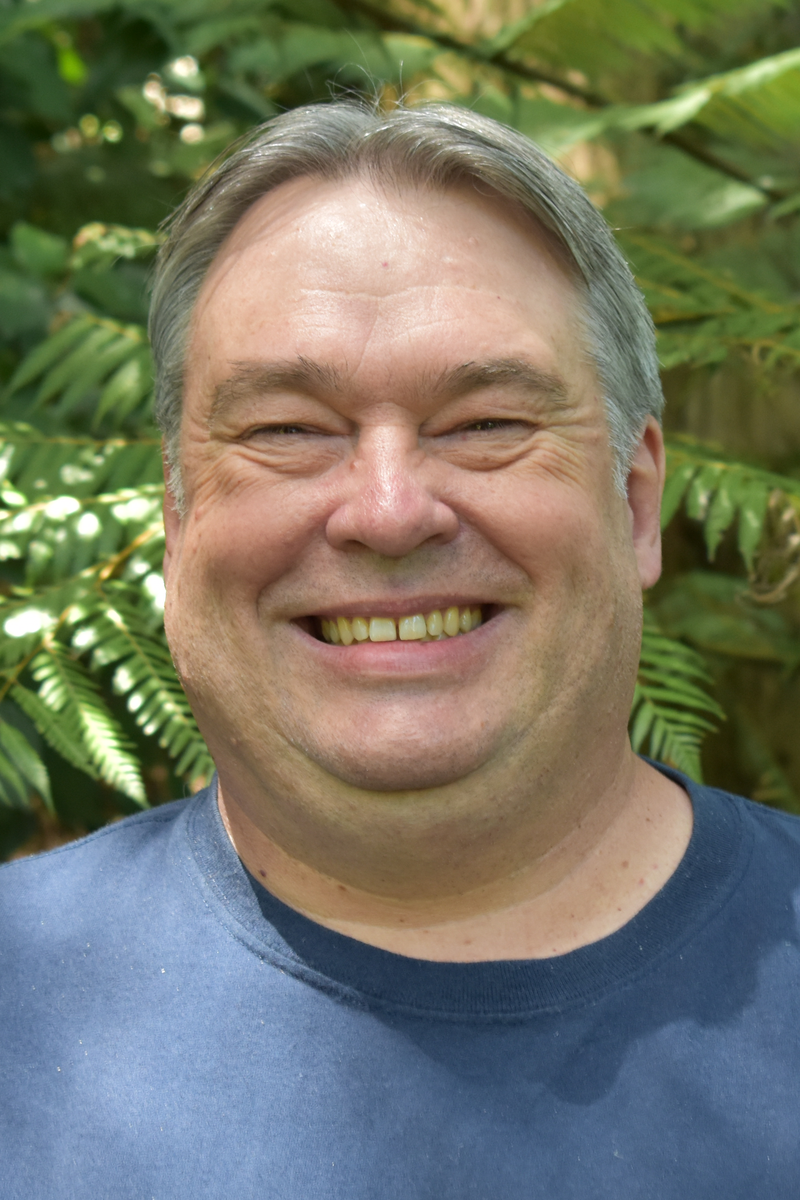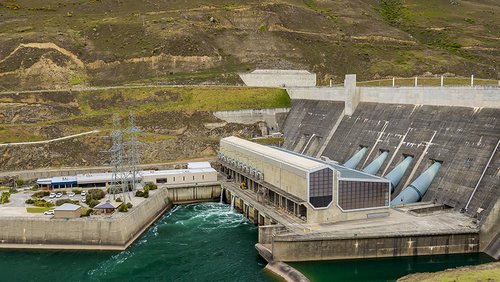28 Feb 2023
We recently caught up with Rob Torrens, Senior Lecturer and Assistant-dean (Academic) for the School of Engineering at University of Waikato. Rob shares his inspiration behind becoming an academic and provides tips and tricks for engineers at any stage of their career.
What is your role at the University of Waikato?
I’m a Senior Lecturer and the Assistant-dean (Academic) for the School of Engineering. This means I teach into a number of papers (primarily in materials), provide programme advice for undergraduate engineering students, and oversee academic (i.e. teaching and learning) related matters within the School.
Why did you become an academic, and was there someone who inspired you to do so?
I didn’t initially have a plan to be an academic. I’d completed my PhD and was at a bit of a loose end, when the opportunity to cover for one of the lecturers (going on sabbatical) came up. I enjoyed the experience, the students gave good feedback on my efforts and it just went from there. So it’s most accurate to say that the students inspired me to be an academic, as interacting with the students is where I gain a huge amount of job satisfaction.
Tell us about three of your career highlights.
- Being nominated for a number of University of Waikato teaching excellence awards, some of which I ended up winning. Some of these university awards lead to nominations for Ako Aotearoa Tertiary Teaching Excellence Awards, though I’m yet to be successful at the national level. While winning the awards was nice, the greater thing for me was that the initial part of the process was driven by student nominations i.e. what I’m doing is valued by the students.
- Last year, as part of the 20th anniversary of Engineering at Waikato, we undertook a survey of all of our engineering alumni. Numerous responses specifically mentioned me and the impact I’d had during their studies – making me realise that the greatest contribution I’ll make is the education and training of our engineering graduates.
- Every year the University of Waikato holds its Engineering Design Show (EDS) to showcase our various design papers and final year projects. As part of the EDS, we hold an industry night with invited speakers. It’s been rather satisfying to get to a point where we can invite our own alumni back to be the guest speakers and hear about their successes and how Waikato contributed to that.
Tell us about the annual boat-building competition and why you think the project is such a great learning resource for first-year engineering students at Waikato University.
For those that don’t know, one of the highlights of first year engineering at Waikato is the boat-build competition, run as part of ENGEN180 Foundations of Engineering. During the lab portion of this paper, groups of first years (with a final year student as project manager) are tasked with designing, building, and finally competing with a remote controlled model boat. The exact form of the boat has changed over the years – initially we started with yachts (though we could never guarantee there’d be sufficient wind on race day); battery powered speed-boats; battery powered fan-boats; battery powered boats for collecting floating plastic waste. The floating plastic waste was originally intended to be ping-pong balls, but the dean of the time informed me he wanted real plastic waste. This posed a dilemma, as I couldn’t in good conscience really pollute the lake – so the ping-pong balls morphed into sealed specimen containers, and small soft-drink bottles instead.
I think there are multiple facets that make the boat-build such a successful project.
- Involving the final year students allows the first-years to benefit from their experience but also allows the final year students to put into practice some of their project management skills with the ‘messy’ human factor at play
- The project is complex (at a level appropriate for first years) and has time, budgetary, and materials constraints – so students are doing a form of ‘real’ engineering in the very first year of the degree
- They gain the experience of translating on-paper designs to a real object, and realise that fabrication and assembly is not easy and shouldn’t be dismissed or overlooked
- Students start developing on-the-fly problem solving skills (see previous point about fabrication and assembly)
There’s a ‘comradeship of the trenches’ that develops, forging friendships where none may have been before .

Rob Torrens. Image: Rob Torrens
In your opinion, what five skills do you think all engineering students need?
Curiosity: I hope that we are all still asking ourselves “What’s that?” or “How does that work?”, when we come across something new to us, ideally followed up with actually doing a bit of investigation/research to answer our question.
Observation: a skill that goes hand-in-hand with curiosity. Being able spot opportunities for new products/developments. Pinpointing what the cause of a fault actually is. Using observation of nature and other systems to provide design inspiration.
Analytical mind-set: being able to tackle a problem or situation in a logical, methodical way. Break a complex problem/situation down into smaller blocks, start at the bit you understand or know, document your working, state your assumptions or sources of information.
Time management: I think this one’s self-explanatory, but still something I’m personally working on improving.
Empathy: Not necessarily something you might associate with engineers or engineering, however we’re regularly interacting with other people in our work and personal lives; the projects we’re working on have the potential to impact other people’s lives. Try to put yourself in the other person’s shoes, how would you feel or react in their situation?
Is there a book that you think all engineers should read?
While I’m not necessarily a fan of the title (as it sounds a little Machiavellian), I’d suggest “How to win friends and influence people” by Dale Carnegie. I’d heard of the book before, but the title had always put me off. It wasn’t until an industry speaker (who happened to be an alumni) pointed out that my learning people’s names in class was a strategy advocated in the book, that I took the time to investigate the book further. Not only does it provide useful techniques that can be employed in a workplace, some of the techniques just lead to better human-to-human interactions in general.
For example:
Six ways to Make People Like You
- Become genuinely interested in other people.
- Smile.
- Remember that a person’s name is to that person the sweetest and most important sound in any language.
- Be a good listener. Encourage others to talk about themselves.
- Talk in terms of the other person’s interests.
- Make the other person feel important – and do it sincerely.
How do you explain the Washington Accord to your students?
There’s two levels of explanation that I often provide. The surface level explanation is that other countries that have signed the accord will recognise our BE(Hons) degrees as equivalent to a qualification from their country. This allows the opportunity to work internationally.
The deeper explanation is that the Washington Accord is an agreed set of skills/attributes that a graduate from a BE(Hons) programme will have developed during their studies. These attributes are what have been decided on as the key characteristics for success as professional engineers.
Why are you a member of Engineering New Zealand?
It seemed appropriate that since I’m training future generations of engineers that I should join the industry body for those engineers (that and repeated emails from Kavita).
Complete the following sentence. 'Engineers bring to the world' ….?
…the opportunity to build a better future.
What do you do in your spare time?
Gardening, reading, keeping tropical fish.
I find gardening therapeutic; I often refer to it as “my therapy” – having my hands in the earth, listening to the birds chirp in the trees and just being ‘in the moment’. There is also a sense of satisfaction sitting back with a cold drink, surveying what I’ve achieved.
Reading is some escapism – it’s mainly sci-fi or fantasy, though as audiobooks rather actual books. Having them as audiobooks means that I can get on and do other things at the same time, whether that’s gardening, mowing the lawn, or just unloading the dishwasher.
Keeping tropical fish is something I’ve done since I was an undergrad – underwater gardens (all my tanks are planted tanks) populated with sparkling little fish, that reward quiet, careful observation.
This interview originally featured in our Employer and Academic newsletters, Teach and Develop.




